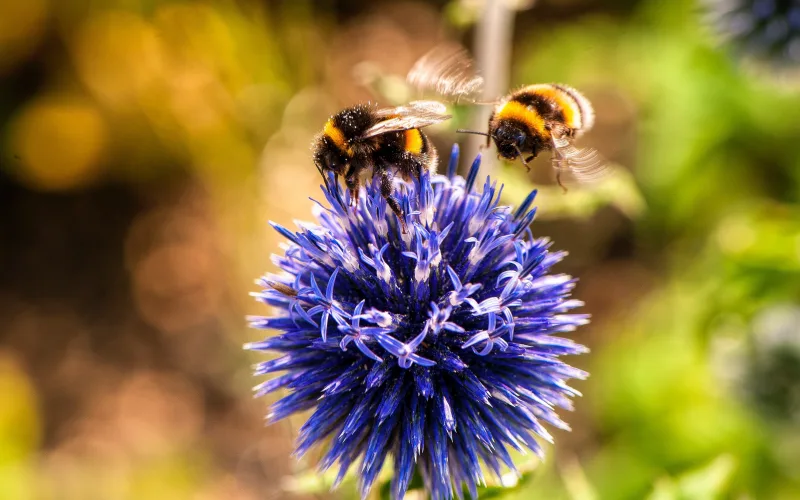Last Updated on April 26, 2024 by Ecologica Life
Pollinators like bumblebees are necessary for almost 80% of worldwide flowering plant species and 35% of the world’s most important crops. Scientists are currently investigating the impact of glyphosate, a common component in pesticides, on bumblebee vision.
The type of pesticide most frequently used worldwide is glyphosate-based herbicides. Pesticides and herbicides are used by farmers and producers to protect their crops from pests. Herbicides are normally designed to kill or control specific types of pests. Pesticides are generally used to kill or repel all types of pests including insects and occasionally plants.
The bumblebee pesticide experiment
The bumblebees (Bombus terrestris) used in the experiment were treated to Roundup, a herbicide that contains glyphosate. Bees were given a 10-colour discrimination exercise to see how the pesticide affected their memory and cognition. There were a total of 20 artificial flowers, two of each colour. Five colours had a sugary treat on them and five had a quinine-based solution that bees are not a fan of.
The control group (No herbicide) quickly learned which colour were connected to the sugar reward and which weren’t throughout the course of five learning sessions, and they were even able to recall the colour combinations three days later. In contrast, the group of bees exposed to Roundup before the task had a difficult time picking up on the colours of the reward flowers, and two days later, they had forgotten everything they had learned.
“We focused on the cognitive traits of the bees because these traits determine the successful foraging and social behaviour of social insects and therefore their fitness. I am really worried. Even one very small acute dose had a harmful effect on the bumblebees,” Said Associate Professor Marjo Herlander from the University of Turku in a statement
The experiments show that the weakened fine colour vision can severely impair bumblebees’ foraging and nesting success. This might not seem like a big deal but the success of pollinators such as bumblebees impact global ecosystems and our food supply. Their failure to forage food correctly directly impact all of us.
What is the legal status of glyphosate in pesticides?
In the US glyphosate pesticides are still widely used. In the EU an initiative was submitted to the European Commission in 2017. The commission concluded that “there are neither scientific nor legal grounds to justify a ban of glyphosate, and will not make a legislative proposal to that effect.” In light of this new evidence, hopefully this common herbicide and pesticide will be revaluated and controlled to protect bumblebees and other pollinators.
Did you know you can set up your own EU initiative?
What do you think of this article? What should we write next? Let us know.








